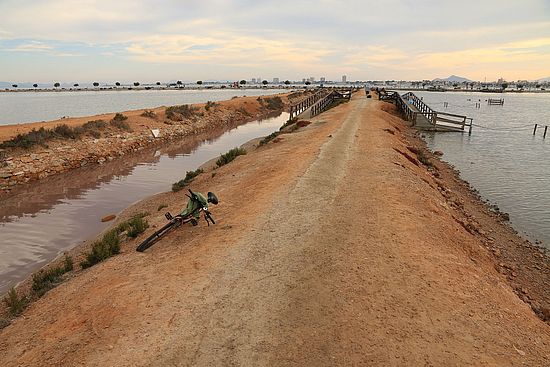
Foto: Creative Commons Lizenz "Øyvind Holmstad, CC BY-SA 4.0 https://creativecommons.org/licenses/by-sa/4.0, via Wikimedia Commons"
Articulating Natures in Democracy, Governance, and Law
The Anthropocene represents a double crisis: a very material crisis that threatens the continued existence of the conditions for the flourishing of human and much more than human life on this planet, and a cosmological crisis that challenges the ontological divide between the two spheres of nature and culture. These two dimensions of the crisis are hard to overcome with separately, because locating what the moderns call "nature" in an area that they standardise, separate and locate outside of the human, or which they instrumentalise for their own purposes, makes it difficult or even impossible to deal with the material planetary crisis.
Constitutive for much of modern thinking, this divide also materializes itself in political, judicial and social institutions and the practices associated with them. Departing from the assumption that this hierarchical dualism between human and nature is a central condition for the ongoing destruction of more-than-human worlds, I am interested in how “nature” and particular more-than human relations, entities, and worlds can be enacted and articulated in alternative non-dualist and non-anthropocentric practices of democracy, governance and jurisdiction. I will study such practices empirically (for example the innovations around the rights on nature) as well as include conceptual reflections on how more-than-human entities and their interests, perspectives or signals can be integrated into such processes.
Das Anthropozän bezeichnet eine doppelte Krise: einer materiellen Krise, die den Fortbestand der Bedingungen für das Gedeihen menschlichen und mehr-als-menschlichen Lebens auf diesem Planeten bedroht, und einer kosmologischen Krise, die die moderne ontologische Trennung zwischen den beiden Sphären von Natur und Kultur in Frage stellt. Diese beiden Diemensionen der Krise lassen sich nur schwer getrennt voneinander bewältigen, denn die Verortung dessen, was die Modernen "Natur" nennen in einen Bereich, den sie vereinheitlichen, separieren und ausserhalb des Menschlichen verorten, oder den sie für ihre Zwecke instrumentalisieren erschwert oder verhindert gar den Umgang mit der materiellen planetarischen Krise.
Konstitutiv für einen Großteil modernen Denkens manifestiert sich diese Trennung auch in politischen, rechtlichen und sozialen Institutionen und den mit ihnen verbundene Praktiken. Ausgehend von der Annahme, dass dieser hierarchische Dualismus von Mensch und Natur eine zentrale Bedingung für die fortschreitende Zerstörung mehr-als-menschlicher Welten ist, interessiere ich mich dafür, wie "Natur" und bestimmte mehr-als-menschliche Beziehungen, Entitäten und Welten in alternativen, nicht-dualistischen und nicht-anthropozentrischen Praktiken der Demokratie, der Governance und der Rechtsprechung umgesetzt und artikuliert werden können. Ich werde solche Praktiken sowohl empirisch untersuchen wie auch konzeptionelle Überlegungen miteinbeziehen, wie mehr-als-menschliche Entitäten und ihre Interessen, Perspektiven oder Signale in solche Prozesse integriert werden können.
Quick Links
